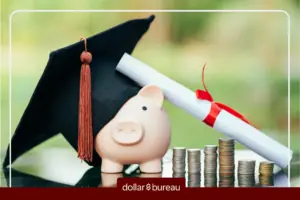Navigating the educational landscape in Singapore can be as daunting as preparing for a major examination — but did you know there’s a set of awards that can not only recognise your child’s efforts but also provide financial incentives?
Yes, we’re talking about the Edusave Awards, a suite of rewards that every parent and student in Singapore should be aware of.
Here’s what you can expect from this post:
- Insight into what Edusave Awards are and why they matter
- Detailed breakdown of the various awards available for different school levels
- Important timelines for the award processes
Whether it’s boosting their academic pursuits or enriching their non-academic activities, the Edusave Awards play a pivotal role.
What are the Edusave Awards?
The Edusave Awards were initiated to encourage excellence in both academic and non-academic fields, these awards are specifically tailored to recognise and reward students who excel in their studies and exhibit good conduct.
The objective?
To motivate students like you (or your child) to achieve your very best in various spheres of school life.
Each year, eligible students across primary, secondary, and specialised schools can receive these awards based on their academic performance, leadership qualities, service to the community, and personal achievements.
The awards come in several types, including the Edusave Merit Bursary, the Good Progress Award, and the prestigious Edusave Scholarships, among others.
Beyond the accolade itself, the Edusave Awards carry monetary gifts that vary depending on the level of education and the specific award.
Academic Performance
Here’s a breakdown of the different Edusave awards focused on academic performance:
| Award | Purpose |
| Edusave Scholarship | Awarded to students who are within the top 10% of their school’s level in terms of academic performance, demonstrating good conduct along the way. |
| Edusave Merit Bursary (EMB) | Target students who are within the top 25% of their school’s level in terms of academic performance, have demonstrated good conduct, and meet household income criteria. |
| Edusave Good Progress Award (GPA) | Recognises students who show the most improvement in academic performance, ranking within the top 10% of their school’s level for improvement and maintaining good conduct. |
| Edusave Scholarship for Independent Schools (ESIS) | Provides scholarships to top-performing students at independent secondary schools in Singapore, encouraging high academic achievement and good conduct. |
These awards are part of the government’s initiative to foster a competitive academic environment while supporting students financially as they strive to excel in their educational endeavours.
Each award is structured to cater to different aspects of academic achievement, ensuring a broad range of recognition for students’ efforts and successes.
Non-academic awards
Here are the various non-academic Edusave awards:
| Award | Purpose |
| Edusave Award for Achievement, Good Leadership and Service (EAGLES) | Rewards students who demonstrate leadership qualities, service to community and schools, excellence in non-academic activities, and good conduct. |
| Edusave Character Award (ECHA) | Given to students who exhibit exemplary character and outstanding personal qualities through their behaviour and actions. |
| Edusave Skills Award (ESA) | Awarded to students from specialised schools, ITE, or polytechnics who have demonstrated excellent professional and soft skills throughout their course of study, alongside good conduct. |
These awards aim to recognise and support the holistic development of students, encouraging not just academic excellence but also the cultivation of character, leadership, and practical skills essential for future success.
Edusave Awards in Different School Types
Primary School
Here’s a table showcasing the Edusave Awards available for primary school students, along with the award amounts they can receive:
| Award | Amount Received |
| Edusave Character Award | $200 to $350 depending on the award category |
| Edusave Scholarship | $350 |
| Edusave Award for Achievement, Good Leadership and Service (EAGLES) | Varies, up to $350 depending on specific achievements |
| Edusave Merit Bursary (EMB) | $200 to $250 |
| Edusave Good Progress Award (GPA) | $100 to $150 |
This table provides a concise overview of the financial recognition given to primary school students through various Edusave Awards, which are designed to encourage and reward academic excellence, good character, leadership, and improvement.
Secondary Schools and Specialised Schools
Here’s a breakdown of the Edusave Awards available for secondary school and specialised school students, along with the award amounts they can receive:
| Award | Amount Received |
| Edusave Character Award | $500 |
| Edusave Skills Award | $500 for students in the graduating cohort of specialised schools |
| Edusave Scholarship for government, government-aided, and specialised schools | $500 |
| Edusave Award for Achievement, Good Leadership and Service (EAGLES) | $350 to $500 depending on the level and specific achievements |
| Edusave Merit Bursary (EMB) | $350 |
| Edusave Good Progress Award (GPA) | $200 to $400 |
This table provides an overview of the different financial recognitions awarded to secondary and specialised school students in Singapore.
Special education schools
For students in special education schools, the Edusave Achievement Award is designed to recognise their efforts and accomplishments.
| Award | Amount Received |
| Edusave Achievement Award | The amount can vary, typically aligned with the criteria and achievements recognised under this specific award program. |
This award is part of a broader initiative to encourage students in special education settings by acknowledging their progress and achievements, catering to their unique educational experiences and milestones.
Junior colleges and Millennia Institute
Here’s the detailed overview of the Edusave Awards available for students in Junior Colleges and Millennia Institute, including the amounts they can receive:
| Award | Amount Received |
| Edusave Character Award | $500 |
| Edusave Award for Achievement, Good Leadership and Service (EAGLES) | $400 |
| Edusave Merit Bursary (EMB) | $400 |
| Edusave Good Progress Award (GPA) | $250 |
These awards are structured to encourage students in their pre-university education to excel not just in academic pursuits but also in character building, leadership, and overall personal development.
ITE and Polytechnic
Here’s an overview of the Edusave Awards available for students in ITE (Institute of Technical Education) and Polytechnics, along with the award amounts they can receive:
| Award | Amount Received |
| Edusave Character Award | $500 |
| Edusave Skills Award | $500 for students demonstrating excellent professional and soft skills |
| Edusave Award for Achievement, Good Leadership and Service (EAGLES) | $500, recognising leadership, service to the community, and non-academic achievements |
| Edusave Merit Bursary (EMB) | $500, for students within the top 25% of their course based on academic performance |
| Edusave Good Progress Award (GPA) | $400, for students who show significant improvement in their course performance |
These awards aim to recognise and support the development of students in vocational and technical education paths, highlighting achievements in character development, skills acquisition, academic performance, and personal growth.
How will my children or I get the Edusave Awards?
Award Ceremony
The presentation of Edusave Awards typically involves an award ceremony organised by your child’s school or, in some cases, by the local Constituency Office (CO).
During these ceremonies, recipients are formally recognised for their achievements in front of their peers, teachers, and family members.
The ceremonies not only serve to honour the recipients but also to inspire other students to strive for excellence.
Receive Award Monies
Receiving the monetary component of the Edusave Awards is streamlined to ensure it reaches the recipients efficiently.
Here’s how the process usually works:
- Notification Letter: Initially, recipients will receive a notification letter from the Ministry of Education detailing their award. This letter usually contains all the necessary information about the award ceremony and the process of receiving the award monies.
- Direct Disbursement: Award monies are typically disbursed through PayNow. Recipients who have registered for PayNow with their bank can receive their award monies directly into their bank accounts shortly after the award ceremony.
- Alternative Arrangements: For recipients who have not registered for PayNow or in cases where PayNow disbursement is not possible, alternative arrangements are made.
These might include depositing the funds directly into the recipient’s bank account upon provision of bank details through a secure form, or in some cases, collecting the award monies directly from the school or a designated community club (CC).
Important periods to note
Here are the important periods you should note regarding the timeline for receiving Edusave Awards across different educational institutions in Singapore:
Primary Schools, Secondary Schools, Specialised Schools
- Award Notification: By December
- Award Ceremony: January to March
- PayNow E-payment Period: January to March
- Correspondence for Direct Credit: End of April
Special Education Schools
- Schedule: Varies among schools. It’s advisable to check directly with the specific school for the most accurate dates.
Junior Colleges, Millennia Institute
- Award Notification: By 29 December
- Award Ceremony: January to March
- PayNow E-payment Period: January to March
- Correspondence for Direct Credit: End of April
Institute of Technical Education (ITE)
Nitec
- Award Notification: Early March
- Award Ceremony: April to June
- PayNow E-payment Period: April to June
- Correspondence for Direct Credit: End of July
Higher Nitec
- Award Notification: Mid-August
- Award Ceremony: October to December
- PayNow E-payment Period: October to December
- Correspondence for Direct Credit: End of January
Polytechnics
- Award Notification: Mid-August
- Award Ceremony: October to December
- PayNow E-payment Period: October to December
- Correspondence for Direct Credit: End of January
These timelines are designed to ensure that the process of notification, ceremony, and payment of the Edusave Awards is as smooth and efficient as possible, allowing students to benefit from the awards in a timely manner.
Conclusion
We’ve journeyed through the essentials of Edusave Awards, covering their purpose, the various types available, and the specific details for different school types and stages of education.
From primary to polytechnic levels, these awards recognise academic achievements, exemplary character, leadership, and non-academic skills.
Understanding the timelines and processes for receiving these awards – from notification to the award ceremonies and the actual disbursement of funds – helps students and parents prepare and ensure they receive the benefits in a timely manner.
The Edusave Awards is just one of the few ways the government is supporting Singaporeans with their education.
From your Edusave account, PSEA account, to the Kindergarten Fee Assistance Scheme, there are many ways to fund education in Singapore.
Feeling a bit overwhelmed or just curious to dig deeper into how these awards can benefit you or your child?
Why not chat with one of our friendly financial advisor partners?
They’re ready to offer you advice, helping you navigate the complexities of funding for you or your child’s education.










